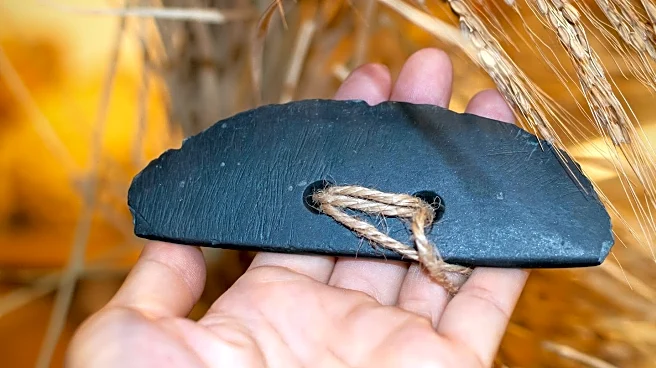What's Happening?
Archaeologists have discovered a 4,000-year-old cuneiform tablet at the ancient city of Alalah, located in modern-day Turkey. This tablet, inscribed with Akkadian cuneiform, provides significant insights into the Late Bronze Age economy and administrative systems of the Mukis Kingdom. The tablet details a major furniture purchase, highlighting Alalah's role in ancient trade networks. The site, first excavated in the 1930s, continues to reveal new information about its political, economic, and cultural significance.
Why It's Important?
The discovery of the tablet is crucial for understanding the economic and administrative systems of the Late Bronze Age. It offers a glimpse into the organized economic transactions of the time, similar to modern-day business receipts. This find contributes to the reconstruction of ancient economic systems, which are often difficult to study due to the scarcity of written records. The tablet also provides insights into the types of goods valued in the society, such as furniture, which may indicate social status or wealth.
What's Next?
Further studies of the tablet's text are expected to reveal more about the roles of individuals and institutions in these transactions, as well as their implications for social stratification during the Bronze Age. Continued archaeological work at Alalah is likely to yield additional discoveries that will enhance our understanding of ancient Anatolian societies and their economic practices.
Beyond the Headlines
This discovery not only enriches our knowledge of ancient trade and economy but also underscores the importance of preserving archaeological sites. The ongoing excavations at Alalah highlight the potential for uncovering more artifacts that can provide a deeper understanding of ancient civilizations and their complex societal structures.










